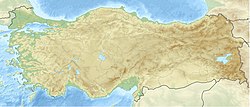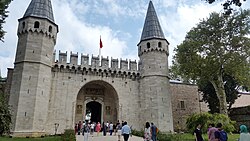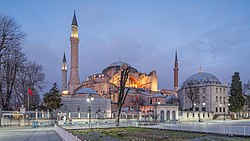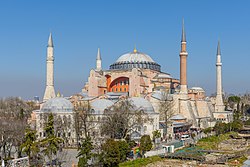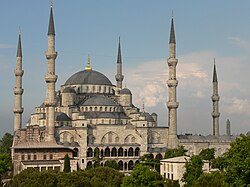Top Qs
Timeline
Chat
Perspective
Historic Areas of Istanbul
World Heritage Sites in Turkey From Wikipedia, the free encyclopedia
Remove ads
The Historic Areas of Istanbul (Turkish: İstanbul'un Tarihî Alanları; Greek: Ιστορικές Περιοχές της Κωνσταντινούπολης, romanized: Historikés Periochés tīs Kōnstantinoúpolis; Ottoman Turkish: استانبولك تاریخي اﻻنلری) are a group of sites in the capital district of Fatih in the city of Istanbul, Turkey. These areas were added to the UNESCO World Heritage List in 1985.
It includes buildings and structures such as the Sarayburnu, the Topkapı Palace, the Hagia Sophia, the Sultan Ahmed Mosque, the Hagia Irene, Zeyrek Mosque, Süleymaniye Mosque, Little Hagia Sophia and the Walls of Constantinople.
Remove ads
Zones
The World Heritage site covers four zones, illustrating the major phases of the city's history using its most prestigious monuments:
- the Archaeological Park, which in 1953 and 1956 was defined at the tip of the peninsula;
- the Süleymaniye quarter, protected in 1980 and 1981;
- the Zeyrek quarter, protected in 1979;
- the zone of the ramparts, protected in 1981.
Pollution
Air pollution in Turkey, such as fine dust from traffic, is a serious problem in Istanbul.[1][2] Although the historic peninsula was partially pedestrianised in the early 21st century,[3] a 2015 study found that this is the part of the city which would benefit most from a low emission zone.[4] However, as of 2022, it was still said to be "car-oriented".[5]
Gallery
References
Wikiwand - on
Seamless Wikipedia browsing. On steroids.
Remove ads



